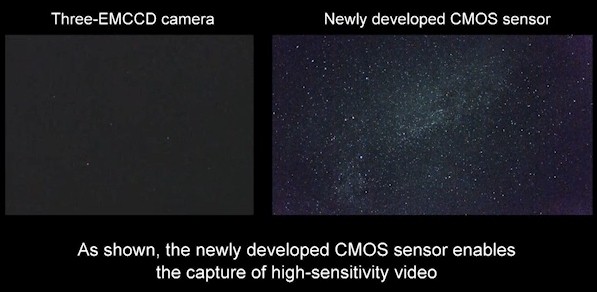Canon is actively developing a video sensor that is able to see in the dark with just a smidgen of light. The sensor collects light by using very large pixels that have 7.5 times the surface area of the ones found in Canon’s 18-megapixel EOS-1D X DSLR despite the fact that the sensor is the same size.
It’s worth pointing out before we dig any deeper that the 35mm full-frame CMOS sensor is being developed exclusively for video recording. That said, we are told that the sensor’s pixels and readout circuitry use new technology that is able to effectively reduce noise, a common problem with sensors as pixel size increases.

Canon says the sensor is able to facilitate shooting of clearly visible images in dimly lit environments with as little as 0.03 lux of illumination which is roughly the amount of light that a crescent moon gives off. At this intensity, it’s difficult for the naked eye to perceive objects, the company says.
Canon was able to pair this new sensor with a prototype camera and capture some stunning images showing stars in the Milky Way galaxy and even shooting stars. The sample video also shows what the sensor can do in a dark room that’s only being lit by three burning incense sticks. The subject isn’t even visible when using a three-EMCCD camera but with the new sensor, we see so much more.
The imaging company plans to demonstrate a prototype camera that uses the new sensor at the Security Show 2013 which starts today and runs through March 8 at the Tokyo International Center in Tokyo, Japan.